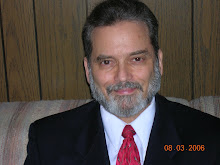The World Health Organization has listed sexual compulsion in its International Classification
of Diseases. Although not a substance, like other " process" compulsions like debting and gambling
the disorder is typified by behavior that lurches out of control despite relationship, monetary, and other personal consequences and failed attempts to stop. Despite controversy over the addiction
model, research suggests the involvement of neural pathways that mimic the same processes in the mind of addicts with substance and other addictions. Despite the controversy, the problem remains of how to help people with sexual compulsion. Some have mood disorders, others PTSD linked to traumas and abuse. There are established treatment protocols for these problems. Some co-exist with substance abuse and other addictions. Integrating treatment that involves social, biological, as well as
intrapsychic issues is important. Many people do well in supportive recovery
groups for individuals and partners. Help is available for betrayed partners whose
reality and trust are shattered by discovery of the addicts activities. Recovery and
managing to free oneself of sexual compulsion is difficult but hardly impossible.
Many have found intimacy and meaning in their lives they never felt possible.
Geoff Michaelson, Ph.D., Certified Sex Addiction Therapist
Monday, March 25, 2019
Subscribe to:
Post Comments (Atom)

No comments:
Post a Comment